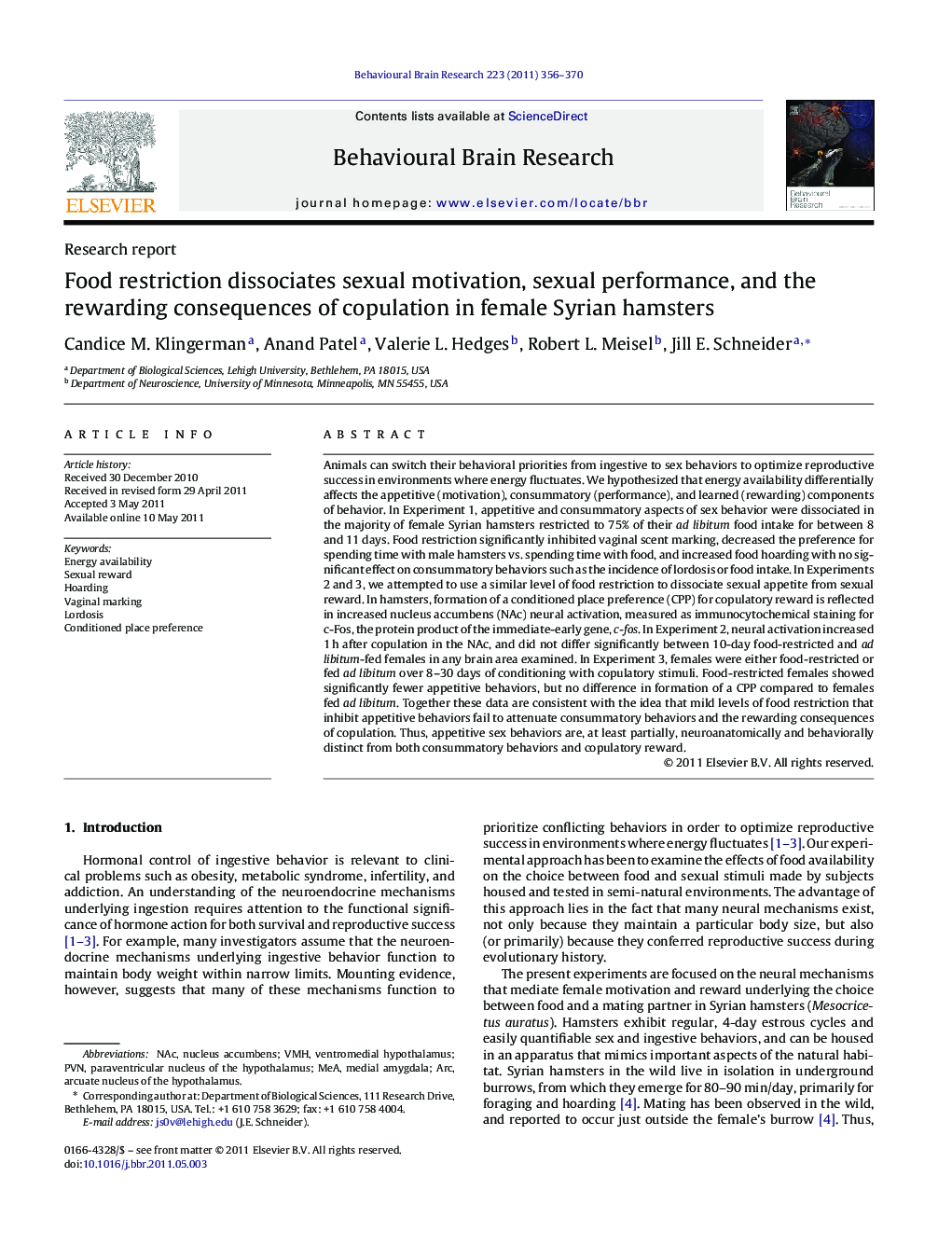| کد مقاله | کد نشریه | سال انتشار | مقاله انگلیسی | نسخه تمام متن |
|---|---|---|---|---|
| 4313269 | 1289992 | 2011 | 15 صفحه PDF | دانلود رایگان |

Animals can switch their behavioral priorities from ingestive to sex behaviors to optimize reproductive success in environments where energy fluctuates. We hypothesized that energy availability differentially affects the appetitive (motivation), consummatory (performance), and learned (rewarding) components of behavior. In Experiment 1, appetitive and consummatory aspects of sex behavior were dissociated in the majority of female Syrian hamsters restricted to 75% of their ad libitum food intake for between 8 and 11 days. Food restriction significantly inhibited vaginal scent marking, decreased the preference for spending time with male hamsters vs. spending time with food, and increased food hoarding with no significant effect on consummatory behaviors such as the incidence of lordosis or food intake. In Experiments 2 and 3, we attempted to use a similar level of food restriction to dissociate sexual appetite from sexual reward. In hamsters, formation of a conditioned place preference (CPP) for copulatory reward is reflected in increased nucleus accumbens (NAc) neural activation, measured as immunocytochemical staining for c-Fos, the protein product of the immediate-early gene, c-fos. In Experiment 2, neural activation increased 1 h after copulation in the NAc, and did not differ significantly between 10-day food-restricted and ad libitum-fed females in any brain area examined. In Experiment 3, females were either food-restricted or fed ad libitum over 8–30 days of conditioning with copulatory stimuli. Food-restricted females showed significantly fewer appetitive behaviors, but no difference in formation of a CPP compared to females fed ad libitum. Together these data are consistent with the idea that mild levels of food restriction that inhibit appetitive behaviors fail to attenuate consummatory behaviors and the rewarding consequences of copulation. Thus, appetitive sex behaviors are, at least partially, neuroanatomically and behaviorally distinct from both consummatory behaviors and copulatory reward.
► Appetitive behaviors, including the choice between courtship and hoarding, represent an important locus of effect of energy availability on reproduction in hamsters.
► This interaction, however, is not apparent when observations are limited to consummatory behaviors such as lordosis and food intake.
► Appetitive behaviors (motivation) were dissociated from consummatory behaviors (ability).
► Appetitive behaviors were also dissociated from the rewarding effects of copulation.
► Together, these results demonstrate that behavioral priorities are set by an interaction between energy availability, male stimuli, and ovarian steroids.
Journal: Behavioural Brain Research - Volume 223, Issue 2, 1 October 2011, Pages 356–370